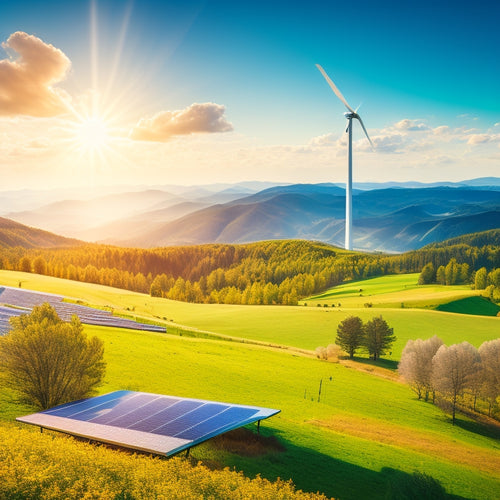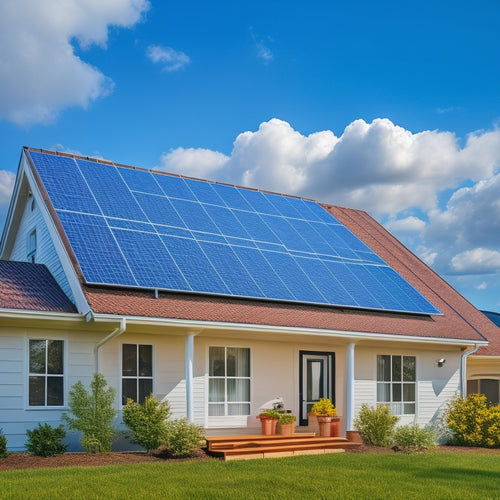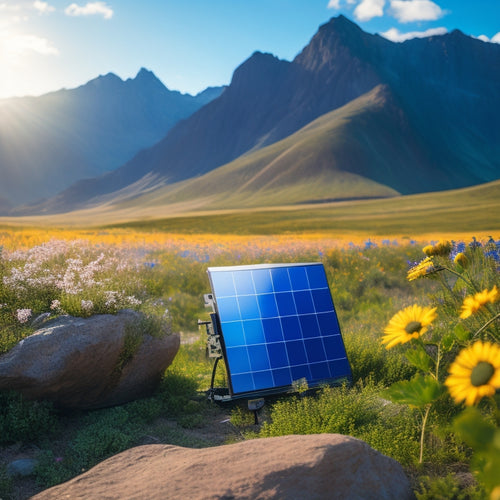
Camping Water Purification Techniques and Tools
Share
Clean water isn't just a luxury while camping; it's a necessity for staying healthy and safe in the great outdoors. You can choose from various purification techniques like gravity filters, UV purifiers, or portable pumps to verify the water is safe to drink. Lightweight solutions like iodine tablets also offer convenience. Test your water source for contaminants and be cautious of factors affecting purification speed, such as water temperature. Investing in reliable tools saves money over time and enhances your outdoor experience. If you investigate further, you'll uncover even more tips to assure clean drinking water on your next journey.
At a Glance
- Clean water is essential for health while camping; reliable filtration and purification methods protect against waterborne diseases.
- Portable purification devices, such as gravity filters and UV purifiers, ensure safe drinking water during outdoor adventures.
- Environmental factors like water temperature and turbidity significantly affect purification speed and efficiency, impacting your camping experience.
- Regular water quality testing using kits can identify contaminants, ensuring safety from harmful bacteria and viruses.
- Investing in purification tools saves money in the long run compared to buying bottled water, enhancing overall camping enjoyment.
Convenience in Remote Locations
When you're out in remote locations, having portable purification devices can make all the difference.
These lightweight filtration solutions guarantee you have access to clean water without burdening you.
Let's examine the options that will keep your hydration hassle-free while you're enjoying the great outdoors.
Portable Purification Devices
Portable purification devices are often vital for campers seeking safe drinking water in remote locations. These tools make it easy to guarantee you stay hydrated, no matter where your expedition takes you.
Gravity filters, for instance, are a popular choice due to their simplicity and effectiveness. You can set them up, and while you relax, they do the hard work of filtering water for you.
UV purifiers are another great option, especially if you're looking for speed and efficiency. Just fill your hydration bladder, activate the UV light, and in minutes, you've got safe drinking water. Plus, they're compact—perfect for any survival kit or backpacking essentials.
For those who prefer hands-on methods, portable pumps can be a real breakthrough. They allow you to filter water directly from a stream or lake, guaranteeing you're prepared for emergencies.
Remember, field testing your purification device before you hit the trail is vital. This way, you'll know exactly how it works when you need it most.
With the right portable purification devices, you can enjoy the freedom of exploring the great outdoors without worrying about your water source.
Lightweight Filtration Solutions
Finding convenient water purification methods is key for campers who want to minimize weight without sacrificing safety. Lightweight filtration solutions can make your camping experience smoother and more enjoyable.
Consider gravity filters; they're easy to use, requiring no pumping or electricity. Just fill a collapsible container, hang it up, and let gravity do the work.
Ultrafiltration membranes are another fantastic option. They're compact and effective, removing bacteria and protozoa while allowing you to enjoy clear, safe water.
If you're feeling daring, DIY filters using sand, charcoal, and gravel can be a fun project that adds a personal touch to your journey.
For those sunny days, solar purification utilizes the sun's power to kill pathogens—just place your water in a clear container and let it sit.
Chemical treatments, like iodine or chlorine tablets, are lightweight backpacking essentials that guarantee your water's safe without bulky gear.
Lastly, always keep an emergency kit handy with backup purification methods. Embracing these lightweight solutions not only enhances your freedom outdoors but also assures you'll stay hydrated and healthy on your trips.
Health Safety Assurance
When you're out camping, ensuring you have clean water is essential for your health and safety. Contaminants like bacteria, viruses, and chemicals can lurk in natural water sources, putting you at risk.
Utilizing solar-powered water purifiers can be an effective solution for ensuring safe drinking water during your outdoor excursions.
Understanding these dangers and how to purify your water can keep you safe and healthy during your outdoor excursions.
Importance of Clean Water
Clean water is vital for your health and safety while camping, and it's often overlooked in the excitement of outdoor excursions. When you're out in nature, staying hydrated is essential, but if you're consuming contaminated water, you're putting yourself at serious risk.
Waterborne diseases can ruin your trip and lead to long-term health issues. To enjoy the freedom of the great outdoors, you need effective hydration strategies. Always prioritize sourcing clean water, whether it's from a stream, lake, or a portable supply.
Remember, not all water is created equal, and it's your responsibility to verify it's safe before drinking. Using purification techniques like filtration, boiling, or chemical treatments can protect you from harmful pathogens.
Consider investing in a reliable water filter or purification tablets to have on hand, so you can tackle any water source confidently.
Common Contaminants to Avoid
As you prioritize sourcing clean water, it's important to be aware of the common contaminants lurking in natural water sources. Understanding these risks is essential for your health and safety when camping.
| Contaminant Type | Examples |
|---|---|
| Biological Contaminants | Bacteria, viruses, protozoa |
| Chemical Pollutants | Pesticides, fertilizers |
| Heavy Metals | Lead, mercury |
| Environmental Toxins | Industrial waste, plastics |
Waterborne pathogens are one of the most significant biological contaminants, often found in stagnant water, especially during seasonal variations like spring runoff. Chemical pollutants can seep into water from agricultural activities, while heavy metals may leach from old pipes or mining sites.
When you're camping, be vigilant about contamination sources like animal waste or industrial runoff. Employ appropriate filtration methods to guarantee your water meets purification standards. Ignoring these health risks can lead to serious illness, so take the time to check your water source. Your freedom to investigate the outdoors should never come at the expense of your health!
Purification Speed and Efficiency
When you're out in the wild, knowing how quickly you can purify water is essential. Different filter types offer varying speeds and efficiency, so it's important to understand their strengths and weaknesses.
For instance, utilizing energy storage systems can enhance the reliability of your water purification setup by ensuring a consistent power supply for filtration devices.
Factors like water temperature and turbidity can also impact treatment time, so being prepared can make all the difference.
Filter Types Comparison
Choosing the right water filter can make or break your camping experience, especially when it comes to purification speed and efficiency. When you're out in the wild, you want a filter that works quickly so you can spend more time enjoying nature and less time waiting for safe drinking water.
There are several filter types to evaluate. Ceramic filters are known for their durability and effectiveness, but they can be slow, taking time to filter larger volumes.
Activated carbon filters excel at improving taste and removing odors but may require more frequent maintenance to replace filter materials.
If you're looking for speed, think about a hollow fiber filter. These filters are quick and often have a longer lifespan, but they mightn't remove all viruses, so you may need a secondary method for complete purification.
Remember that the frequency of maintenance depends on the filter type and how often you use it. Regularly check your filter's status to verify it's performing at its best.
Ultimately, understanding these comparisons will help you choose a filter that aligns with your camping needs and keeps you hydrated on your journeys.
Treatment Time Factors
Understanding treatment time factors is essential for effective water purification while camping. The speed and efficiency of your purification methods depend on various elements, including environmental conditions and water source variability. Here's a quick overview of how these factors come into play:
| Factor | Impact on Treatment Duration | Tips to Enhance Usability |
|---|---|---|
| Environmental Conditions | Affects filtration effectiveness; cold water slows down processes. | Choose methods suited for weather conditions. |
| Flow Rate | Higher flow rates can reduce treatment time but may compromise purification. | Balance speed with thoroughness. |
| Chemical Properties | Some contaminants require longer treatment for removal. | Know your water source's quality. |
| Maintenance Requirements | Poorly maintained systems can lead to inefficiency. | Regularly service your gear for maximum performance. |
Assessing Your Water Source
When you're out camping, identifying safe water sources is essential for your health. Look for clear streams or lakes, but don't forget to assess their quality before filling up your containers.
Utilizing techniques like solar power can enhance your camping experience by providing reliable energy for water purification tools, promoting energy independence while enjoying nature. Testing the water can save you from unpleasant surprises and keep your excursions enjoyable.
Identifying Safe Sources
As you venture into the great outdoors, pinpointing a safe water source is vital for your health and well-being. Start by exploring natural water sources like streams, rivers, and lakes.
Keep in mind that the water quality can vary based on environmental factors, such as nearby vegetation and soil erosion. Urban water sources, like tap water from nearby communities, can also be an option but may come with higher contamination risks.
When evaluating your options, consider seasonal water availability. Some sources might dry up in the summer, while others may swell after heavy rains. Use water source mapping tools to locate the best potential sources in your area.
Be mindful of local wildlife impact. Animals can introduce pathogens into the water, so avoid areas with heavy animal traffic.
Look into community water resources for information on safe spots and sustainable practices. This guarantees you're not only drinking safe water, but also protecting the ecosystem.
Testing Water Quality
Before filling up your water containers, it's vital to test the water quality to guarantee it's safe to drink. You might be tempted to scoop water straight from that crystal-clear stream, but looks can be deceiving. Engaging in proper water testing is vital for your health and peace of mind.
Start by gathering a water testing kit, which can include test strips or portable meters. With these tools, you can assess important parameters like pH, turbidity, and contamination levels. Don't skip this quality assessment—why risk your journey with waterborne illnesses?
If you're in the backcountry, remember that some sources, even if they appear clean, may harbor harmful bacteria or viruses. Even a small amount of contamination can spoil your fun.
In addition to using your testing kit, trust your instincts. If the water smells foul or looks cloudy, steer clear.
Ultimately, you want to enjoy your camping experience without the worry of getting sick. So, take a few moments to test the water; your body will thank you later, allowing you to roam free and enjoy nature's beauty without hesitation.
Cost-Effectiveness Over Time
When you're considering water purification methods for camping, it's crucial to think about long-term savings.
Investing in a reliable purification system might seem costly upfront, but over time, it can save you money compared to buying bottled water or disposable filters.
Long-term Savings Analysis
Investing in camping water purification techniques can lead to significant long-term savings for outdoor enthusiasts. When you consider the costs of purchasing bottled water or relying on commercial purification services, the expenses can quickly add up.
By implementing effective purification methods, you're not just saving money; you're also gaining freedom on your outdoor escapades.
In your budgeting strategies, factor in the initial investment in tools like filters, UV purifiers, or chemical treatments. While these may seem pricey upfront, an investment analysis reveals the cost-effectiveness over time.
For instance, a portable filter can purify thousands of liters, making it far cheaper than buying bottled water for each trip.
Moreover, with your own purification system, you can traverse remote locations without worrying about water sources. This flexibility enhances your camping experience, allowing you to go off the beaten path and welcome nature more fully.
Ultimately, by choosing reliable camping water purification techniques, you're investing in both your health and your wallet.
Frequently Asked Questions
Can I Purify Seawater for Drinking Purposes?
Yes, you can purify seawater for drinking by using seawater desalination methods and water filtration systems. These techniques remove salt and impurities, making it safe for consumption. Just make certain you have the right equipment handy!
How Do I Maintain My Purification Equipment?
Think of your purification equipment like a trusty steed; keep it clean and well-stored. Regularly perform filter cleaning, ensuring efficiency. When not in use, store it in a cool, dry place to maintain its longevity.
What Is the Shelf Life of Purification Tablets?
Purification tablets generally last about two to five years, but their efficacy can diminish if you don't store them properly. Keep them in a cool, dry place to guarantee they work when you need them.
Are There Any Environmental Impacts of Water Purification?
Water purification's environmental impact can feel monumental. While you reduce your ecological footprint, be cautious of chemical runoff that may harm ecosystems. Choosing eco-friendly methods helps preserve nature while ensuring safe drinking water for your excursions.
Can I Use Water Purification Methods for Cooking?
Absolutely, you can use purification methods for cooking safety. By ensuring your water is clean, you reduce health risks. Just follow the right techniques, and enjoy your meals without worrying about waterborne contaminants.
Explore More
As you investigate the great outdoors, think of your water purification tools as a sturdy bridge connecting you to safety and health. Each technique, whether it's boiling, filtering, or using chemical treatments, acts like a lifeline, ensuring you can enjoy nature without worry. By evaluating your water source and choosing the right method, you're not just making a choice; you're building a path toward exploration. Welcome these practices, and let clean water be your guiding star in every camping trip.
Related Posts
-

Renewable Energy Solutions to Reduce Your Carbon Footprint
To reduce your carbon footprint, adopting renewable energy solutions is key. Using solar panels or wind turbines can ...
-

Cost of Solar Panel Installation
You can expect to pay between $15,000 and $30,000 or more for a typical solar panel installation, depending on the sy...
-

High-Efficiency Solar Battery Chargers for Remote Areas
High-efficiency solar battery chargers are essential for your off-grid energy needs in remote areas. They maximize en...


